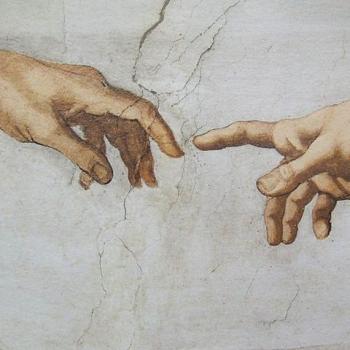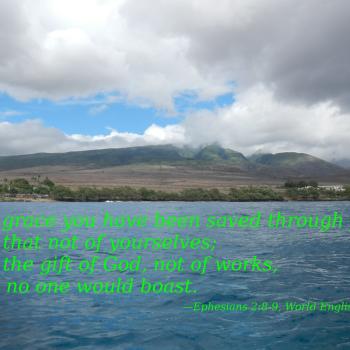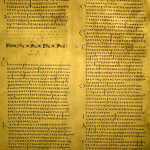
Any particular sin we commit, will, by its nature, be limited in potential, and so, the consequences of it will also be limited. Though different sins will have different potentialities, with some greater than others/ No particular sin is infinite in its potential, and we should expect no sin, in and of itself, will produce an infinite amount of consequences once it has been enacted. That is, of course, if the consequences are related to the gravity of the sin, and justly so (for if they were disproportional, then those consequences would not be just).
This is why many would argue no such sin, in and of itself, justifies eternal hell: no matter how grave the sin is, it is finite, and it would be unjust to give to it anything but finite consequences. While he is not arguing against the possibility of eternal perdition, St. Theognostos does suggest eternal perdition cannot be seen merely as the result of some particular sin, “We will not be punished or condemned in the age to be because we have sinned, since we were given a mutable and unstable nature.”[1]
It is not the sin which is the problem, it is the will that leads to such sin. If someone does not repent, that is, if they do not change their will, they will not simply sin once and be done with sinning. They will continuously sin, and insofar as they continue to will to sin, they will keep producing sins which bring about their just punishments, that is, the just consequences which are a result of their actions. To never repent, to constantly will to sin, is possible, and thus, to continuously will to sin is to continuously create the conditions for one’s own punishment. It is not sin, but the will itself, which is the issue, and those who do not change their will can will in such a way to create perpetual punishment upon themselves, and this is exactly what would lead someone to eternal perdition. “But we will be punished if, after sinning, we did not repent and turn from our evil ways to the Lord; for we have been given the power to repent, as well as the time in which to do so. Only through repentance shall we receive God’s mercy, and not its opposite, His passionate anger.” [2]
It is, of course, the fire of God’s love for us, the fire which seeks to transform us and purify us, which is interpreted as anger. This is because God comes to purify us, and insofar as we need such purification, insofar as something is “burned up” by that fire, we feel experience pain and suffering. God is not, however, truly angry with us; we only speak of his anger in a conventional, metaphorical sense. ”Not that God is angry with us: He is angry with evil. Indeed, the divine is beyond passion and vengefulness, though we speak of it as reflecting, like a mirror, our actions and dispositions, giving to each of us whatever we deserve.”[3] Our actions come back to us in the light of truth, that is, in the fire of God’s fiery, transformative love. God’s love seeks to draw us in and deify us, to make us partakers of itself, of the divine nature. If we resist, and so sin, we shall be burned, but if we do not, we will be transformed by it, become one with it, one with the fire, burning bright in eternity as we share in the divine life and experience its glory and joy. Any resistance to it, any attempt to thwart it instead of join in with it, only comes back at us, hurting us in the process.The more we resist and struggle against God’s fiery love, the more we fight, the harder we feel the blows, the greater the pain and sorrow we bring unto ourselves.
Hell, then, is not something which God desires for anyone. He is not angered with us. He does not hate us, rather, he seeks us out, seeks to bring us over to himself so we that can share the divine life with him. We are called to theosis. God is all-deifying. He loves the world. He seeks to be all-in-all. Eternal perdition, if it happens, is based upon our will, what we will in relation to God and his love; if we reject his love, if we fight against it, if we struggle against it in perpetuity, then we will have created our own suffering, our own private little hell. If we, however, repent, if we change our will, and so accept God’s deifying grace, we will not have to suffer eternal perdition.
Sin is a barrier between us and God, but it is a barrier which God is constantly taking down; each sin is limited, the consequences of that sin is limited, and as that potential loses steam and comes to its end, God removes the barrier which it prodcued. He does so with his fiery love, burning it up in his eternal fire. But what does he find? Does he find new sins, new barriers between him and us? He does, only so long as we do not repent, only so long as we continue to will to sin, that is, as long as we fight and resist him. When we stop resisting him, when we stop putting up that barrier between him and us, we can then be drawn in by his love and experience the kingdom of God. We will then understand all the pain and suffering we went through was the result of us, and not because God was some sort of sadist. He isn’t. All he wants to do is love us and be loved. He has given us the freedom to choose that love, or to resist it. It is up to us to decide what we shall do.
[1] St. Theognostos, “On the Practice of the Virtues” in The Philokalia: The Complete Text. Volume Two. Trans. G.E.H. Palmer, Philip Sherrard, Kallistos Ware et. al. (London: Faber and Faber, 1984), 369-70 [#47].
[2] St. Theognostos, “On the Practice of the Virtues,” 369-70 [#47].
[3] St. Theognostos, “On the Practice of the Virtues,” 369-70 [#47].
Stay in touch! Like A Little Bit of Nothing on Facebook.
If you liked what you read, please consider sharing it with your friends and family!

















